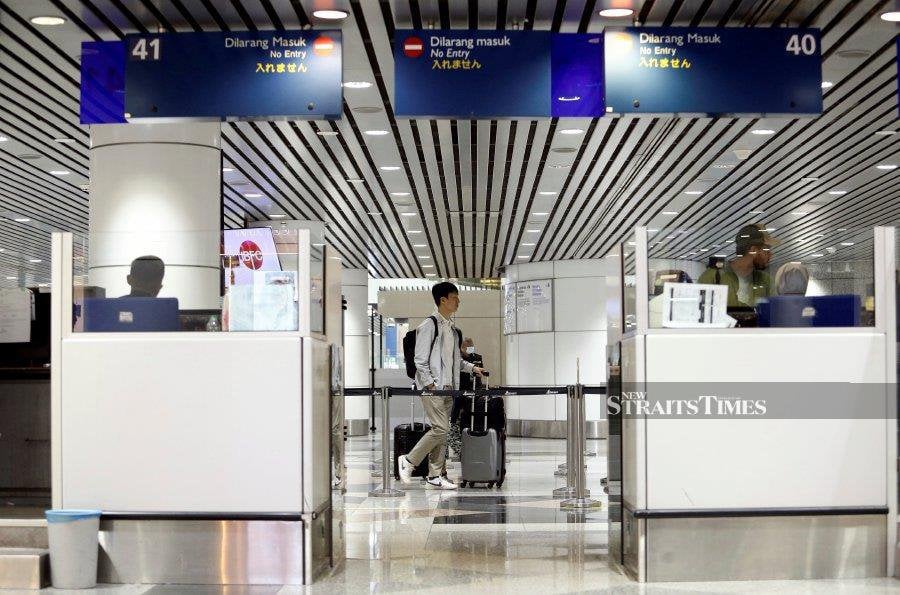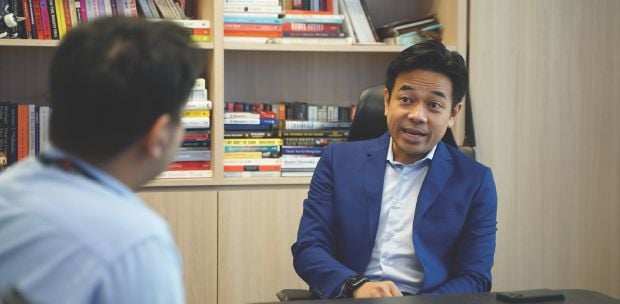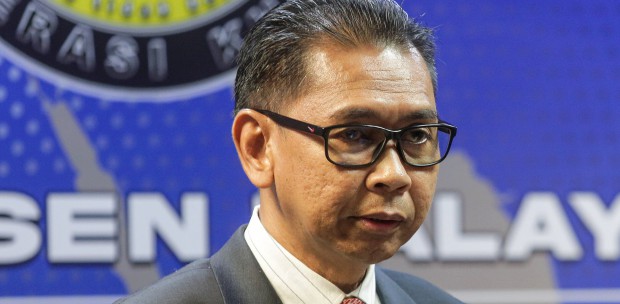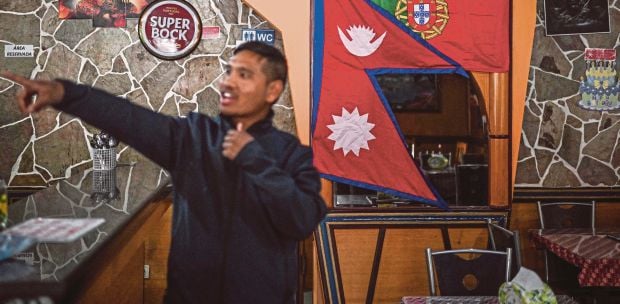THE Association of Family Support & Welfare Selangor & KL (Family Frontiers) joins the global 16 Days of Activism Against Gender-Based Violence campaign, committing to fight against violence towards women in Malaysia.
In this regard, we would like to shed light on "the Invisible: The Women and Children in Malaysian Binational Families".
We welcome the government's recent visa liberalisation plan, introducing a 30-day Multiple Entry Visa (MEV) and a long term social visit pass for international students.
However, there is a noticeable omission regarding the specific needs of vulnerable women and children in Malaysian binational families. These individuals, despite living permanently and having established families in Malaysia, remain absent from this new policy framework.
Women and children in Malaysian binational families are often overlooked, despite an estimated average of 164,000 visas being issued annually by the Immigration Department of Malaysia to non-citizen spouses of Malaysians.
Despite living here for many years, raising children and establishing permanent homes, their legal status remains uncertain and dependent on their Malaysian spouses. These disproportionately impact women in binational marriages.
Family Frontiers has identified four critical areas that requires immediate attention and decisive action from the government:
1. Limitations to Employment: Non-citizen spouses constitute a substantial and unrecognised latent workforce of professionals and skilled individuals who can contribute to productivity and brain influx in Malaysia.
However, their right to employment is heavily restricted. The Long-Term Social Visit Pass (LTSVP) issued to these non-citizen spouses includes a statement of prohibition from employment on the visa, presenting substantial challenges in finding work.
Although it is possible to obtain a work endorsement, it requires an initial job offer, but the prohibition on their LTSVP hinders them from receiving such job offers in the first place.
Furthermore, work endorsement is restricted to the same state where LTSVP is applied. If they find employment in a different state, they face a lengthy and cumbersome process to transfer their LTSVP file to the state of their employment. This process can take anywhere from three to six months, a duration during which most employers are unwilling to wait.
This situation disproportionately affects women in Malaysian binational marriages and is not in the best interest of their Malaysian children. Non-citizen wives may find themselves trapped in abusive relationships due to a lack of financial independence.
On the other hand, Malaysian women married to non-citizen husbands are frequently forced into the role of being sole breadwinners because of their husbands' challenges in securing employment.
For example, consider the plight of Suraya (pseudonym), married for nine years to a Yemeni national who has lived in Malaysia for 15 years since his student days. Despite his engineering qualification from a Malaysian public university, his lack of Permanent Residence (PR) status has hindered him from securing a job in his field, creating uncertainty and anxiety in their marital life.
Despite their efforts to comply with visa regulations and integrate into Malaysian culture, their journey to obtain PR has been marked by shifting requirements and lengthy waits. Faced with limited career prospects, Suraya's husband pursued a scholarship in Indonesia, highlighting a missed opportunity for Malaysia and adding emotional strain to Suraya's life as she navigates the distance from her spouse.
Jayakrishnan Seeridaran, [1/12/2023 1:08 PM]
2. Restricted Access to Permanent Residence: Malaysian PR, also known as the Entry Permit, allows non-citizens to live in Malaysia indefinitely. Unfortunately, the lack of transparency, long waiting times, and low approval rates for PR applications leave many non-citizen spouses in unstable situations, keeps non-citizen spouses fully dependent on their Malaysian spouses for years and decades without providing women in binational national marriages the autonomy to plan for their future and that of their families.
Gulzhan, a non-citizen woman married to a Malaysian man for 14 years, had applied for PR in Malaysia. Despite possessing qualifications in Islamic Finance, Gulzhan was unable to leverage her expertise due to an undisclosed regulation that financial institutions need to obtain approval from Bank Negara Malaysia before employing foreigners.
Consequently, her lack of PR hinders her pursuit of a career in the finance sector. Yusuf, her husband, fears that if anything unfortunate were to happen to him, his wife would not have the legal status nor the financial autonomy to support her Malaysian children on her own, without PR.
Non-citizen wives of Malaysians are eligible to apply for PR after living in Malaysia for five years on the LTSVP. However, only a limited number of applicants are granted PR.
A 2022 survey by Family Frontiers with 65 respondents who applied for PR, revealed that none of the participants had their PR applications approved. All applications were still pending, with 28 per cent waiting more than four years and 30.2 per cent of respondents were kept waiting for PR approval for over six years
.
3. Proposed amendment on non-citizen wives of Malaysian men
The government plans to amend Article 26(2) related to Article 15(1), enabling the authorities to revoke Malaysian citizenship, if the marriage dissolves within two years of obtaining citizenship, in what at the outside seems an effort to curb "marriages of convenience".
However, non-citizen spouses of Malaysians face significant barriers in obtaining citizenship under Article 15(1) as the criteria for citizenship has deviated from the mandated criteria in the Federal Constitution to be eligible upon two years of living in Malaysia after marriage and with the intention to live permanently has instead been replaced by two years after obtaining Malaysian PR (MyPR), which if obtained, comes years and even decades after marriage.
This in turn, denies non-citizen spouses the pathway to citizenship. Without the ability to obtain PR, the pathway to citizenship remains unattainable.
While it is important to ensure the institution of marriage is not abused to obtain citizenship, the proposed amendment must ensure that once citizenship is granted, it cannot be revoked solely due to marriage dissolution that takes place years later. It is equally crucial to protect spouses who have acquired Malaysian citizenship through marriage from vulnerability and potential statelessness.
Malaysia has acceded to the UN Convention on the Elimination of All Forms of Discrimination Against Women (CEDAW) in 1995 and with Malaysia coming for review in the forthcoming months, the government must follow the principle of equality and non-discrimination in providing safeguards and protection to women in binational marriages.
We urge the government to:
a. Proceed immediately with the Constitutional amendment to grant children born abroad to Malaysian mothers the automatic right to Malaysian citizenship and decouple and re-evaluate the other proposed amendments, in light of the potentially severe and harmful implications on the welfare and protection of other vulnerable groups.
b. Remove the statement of prohibition on employment on the LTSVP and allow non-citizen spouses to work in all sectors, including those requiring professional licences in light of the fact that this could substantially reverse the brain drain.
c. Establish a streamlined PR process, including a reasonable time frame and justification for rejection. Accord PR after five years on LTSVP, irrespective of nationality, qualifications, income, or children, and utilise existing documentation submitted during the application and extension of the LTSVP.
d. Grant separated, divorced, and widowed non-citizen spouses the right to reside and work in Malaysia, regardless of nationality, gender, income, custody status in the best interest of the Malaysian children and the wellbeing of the family.
In conclusion, closing the identified gaps not only aligns with the government's commitment to the Sustainable Development Goals (SDGs) of leaving no one behind but also serves as a critical step in fostering a fair and supportive environment for Malaysian binational families.
Family Frontiers
Petaling Jaya, Selangor





